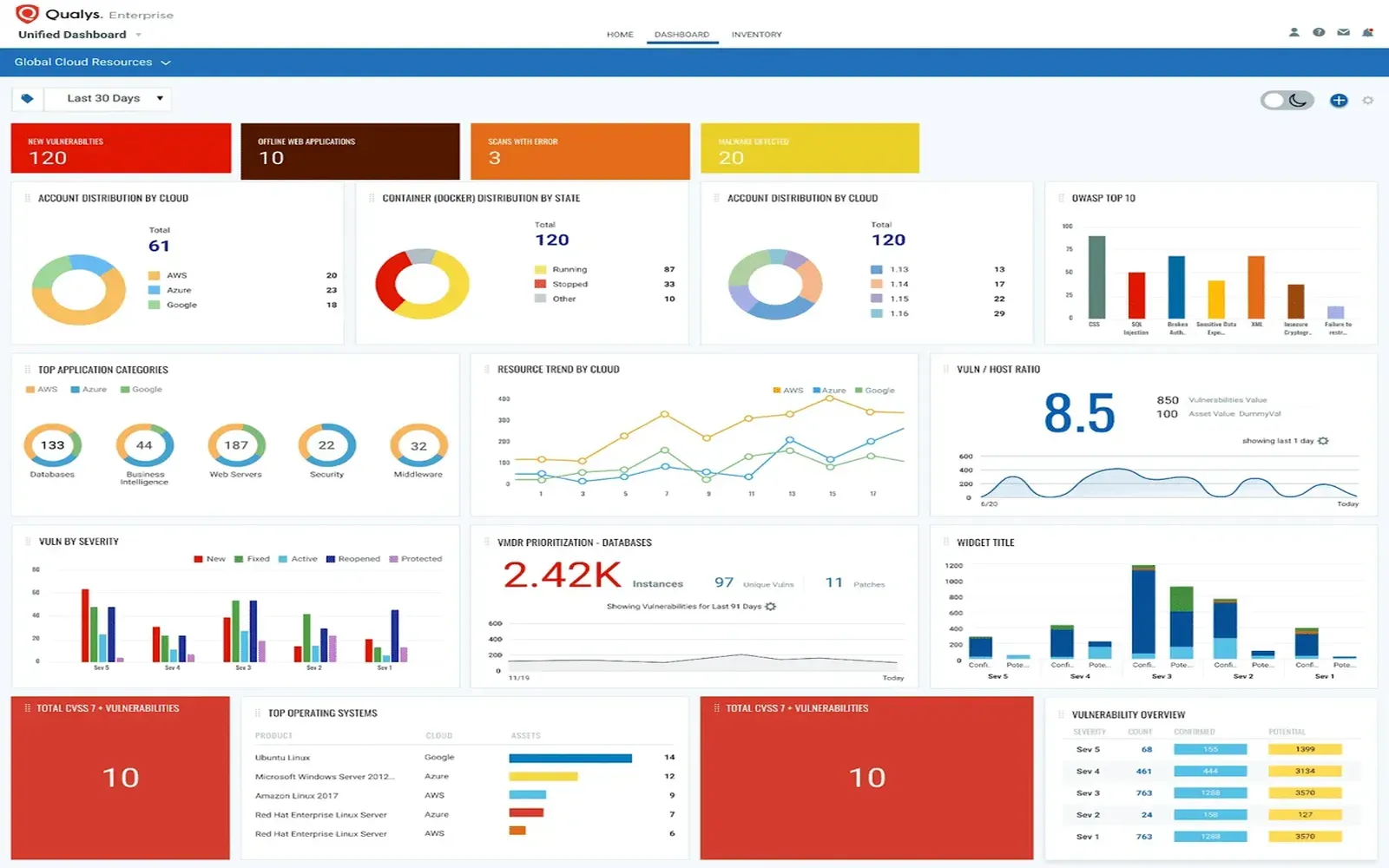Why Dedicated Hosting is the Future of Web Performance in 2025: Key Benefits and Trends
Introduction
As we move further into the digital age, the demand for reliable and high-performing web services continues to escalate. Businesses, organizations, and individuals alike are seeking solutions that not only provide speed and efficiency but also cater to their specific needs. Among the various hosting options available, dedicated hosting stands out as a robust choice for those looking to optimize their web performance. By 2025, the advantages of dedicated hosting will be more pronounced than ever, making it the preferred solution for many. This article explores why dedicated hosting is the future of web performance, highlighting key benefits and emerging trends that solidify its position in the market.
Understanding Dedicated Hosting
Dedicated hosting is a service where a client leases an entire server exclusively for their use. Unlike shared hosting, where multiple users share the same server resources, dedicated hosting offers unparalleled control, customization, and performance. This arrangement is particularly beneficial for high-traffic websites, e-commerce platforms, and enterprises that require consistent uptime and robust security measures. As we approach 2025, the importance of dedicated hosting will become increasingly clear as online competition intensifies.
Key Benefits of Dedicated Hosting
1. Enhanced Performance
Performance is paramount in the digital landscape. Websites that load slowly can lead to high bounce rates and lost customers. Dedicated hosting provides superior speed and reliability since all server resources are allocated to a single client. This means faster loading times, improved website responsiveness, and an overall better user experience. With advancements in technology and the increasing complexity of websites, dedicated hosting will be integral in meeting the performance demands of the future.
2. Improved Security
Security is a growing concern for businesses operating online. With data breaches and cyber attacks becoming more frequent, dedicated hosting offers a significant advantage. Clients have full control over their server environment, allowing them to implement custom security measures tailored to their specific needs. Additionally, dedicated servers often come with advanced security features such as firewalls, DDoS protection, and regular security audits, ensuring a higher level of protection compared to shared hosting solutions.
3. Customization and Flexibility
Every business has unique requirements, and dedicated hosting allows for a level of customization that shared hosting simply cannot match. Clients can choose their operating system, hardware specifications, and software applications, tailoring the server to fit their specific needs. This flexibility is essential for businesses looking to optimize their web performance while accommodating growth and changing demands. As we head into 2025, this trend toward customization will only continue to grow, with dedicated hosting emerging as a key solution for organizations of all sizes.
4. Scalability
As businesses expand, their web hosting needs often evolve. Dedicated hosting offers the scalability necessary to accommodate growth. Clients can easily upgrade their server resources, such as CPU and RAM, to handle increased traffic and data demands. In 2025, as businesses increasingly rely on digital platforms for their operations, the ability to scale effortlessly will be a vital factor in choosing a hosting solution.
5. Better Resource Allocation
With dedicated hosting, all server resources are reserved for a single client, leading to better resource allocation. This dedicated environment ensures that websites perform optimally without the risk of slowdowns caused by neighboring sites, a common issue in shared hosting. As the demand for web performance grows, having control over resources will become increasingly critical, making dedicated hosting a preferred choice.
Emerging Trends Supporting Dedicated Hosting
1. The Rise of E-commerce
The e-commerce sector continues to experience explosive growth, with more businesses moving online. As more consumers shop digitally, the need for high-performing, secure websites becomes essential. Dedicated hosting provides the performance and reliability necessary for e-commerce platforms, ensuring that transactions are processed smoothly and securely. In 2025, dedicated hosting will be a cornerstone for e-commerce businesses looking to offer exceptional user experiences and maintain customer trust.
2. Increased Demand for Compliance and Regulation
With the rise of data protection regulations such as GDPR and CCPA, businesses must ensure compliance to avoid hefty fines and reputational damage. Dedicated hosting allows organizations to implement specific compliance measures tailored to their needs. By 2025, the trend toward stricter data regulations will make dedicated hosting an attractive option for companies seeking to safeguard their data and maintain compliance.
3. Cloud Integration and Hybrid Solutions
As cloud technology continues to evolve, the integration of dedicated hosting with cloud services is becoming more common. Businesses are increasingly looking for hybrid solutions that combine the reliability of dedicated servers with the flexibility of the cloud. In 2025, we can expect to see more providers offering integrated solutions that leverage the best of both worlds, further solidifying dedicated hosting's role in the future of web performance.
4. Artificial Intelligence and Automation
The advent of artificial intelligence (AI) and automation is transforming various industries, including web hosting. Providers are increasingly utilizing AI to optimize server performance, improve security, and enhance customer support. In 2025, dedicated hosting services will likely incorporate AI-driven tools to monitor performance, automatically allocate resources, and perform routine maintenance, making it an even more attractive option for businesses.
Cost Considerations
While dedicated hosting may come with a higher price tag compared to shared hosting, the return on investment can be significant. Businesses must consider the potential cost of lost revenue due to downtime, slow load times, and security breaches. In 2025, as competition intensifies, the value of investing in dedicated hosting becomes clearer. Organizations that prioritize web performance and security will likely see their investments pay off through increased customer satisfaction and retention.
Conclusion
As we look ahead to 2025, the benefits and trends surrounding dedicated hosting position it as a leading solution for businesses seeking to optimize their web performance. Enhanced speed, improved security, customization, scalability, and better resource allocation make dedicated hosting an attractive option in an increasingly competitive digital landscape. The rise of e-commerce, increased demand for compliance, hybrid solutions, and the integration of AI will further solidify the role of dedicated hosting in the future of web performance.
In a world where online presence can make or break a business, investing in dedicated hosting is not just a strategic move; it’s an essential step toward ensuring success in the digital age. As organizations strive to meet the demands of their customers and navigate the evolving technological landscape, dedicated hosting will undoubtedly remain at the forefront of web performance solutions in 2025 and beyond.
Explore

Online Advertising in the USA: Trends, Opportunities, and Key Insights

Choosing a Good Medical Record System: Key Features and Benefits

Top Software Development Companies to Watch in 2025: Innovations and Trends Shaping the Future

What Is Cloud Web Security?

Exploring Nurse Practitioner (NP) Programs in 2025: Trends, Opportunities, and Growth

Top Social Media Marketing Companies to Watch in 2025: Trends, Strategies, and Success Stories

2025 Business Fiber Pricing Guide: Uncover the Best Deals and Trends for Your Company

Essential Guide to Commercial Vehicle Insurance in 2025: Trends, Tips, and Coverage Options
